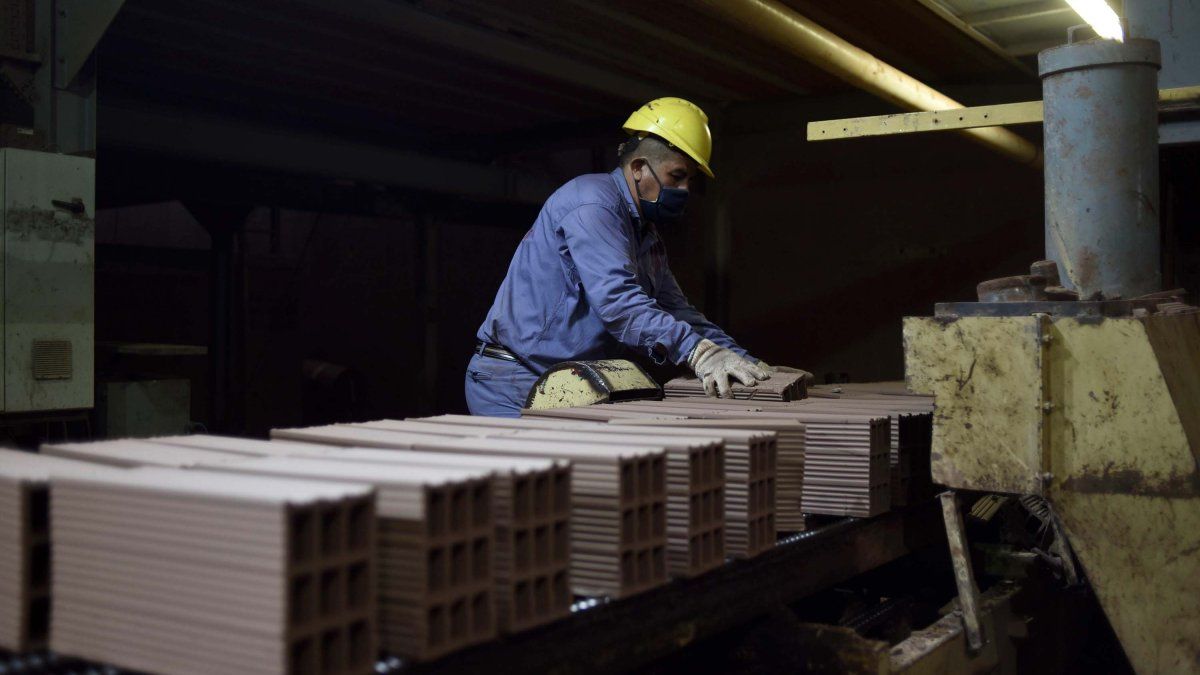Last week the Government suffered a shock. Poverty jumped from 40.1%, which it marked in the first quarter of 2023, to 52.9% in the same period of this yearwhich represents the highest figure in two decades, as reported by the National Institute of Statistics and Censuses (INDEC). For its part, The encouraging data from the Monthly Economic Activity Estimator (EMAE) for July seems not to be repeated in August and experts warn that, looking ahead to the coming months, they see that there may be a slow recovery of activity, but that They do not rule out that the monthly declines will continue.
The latest EMAE data released by INDEC revealed that the index fell 1.3% in July in the year-on-year comparison but it grew 1.7% compared to June. This data, however, will not be replicated in August, according to expectations. The measurement of Orlando J. Ferreres, The general level of activity registered a drop of 5.6% year-on-year in August from 2024 and accumulates a 5% contraction for the first eight months of the year. For its part, the measurement against July contracted 0.6%. The most affected sectors, year-on-year, are: construction (-15.7%), which continues to be the hardest hit, and commerce (-9.1%).
No “V” recovery seen
“August did not repeat July’s performance. There are sectors that did well and others, not so much. So it is not enough to extrapolate July and draw many optimistic conclusions. The credit will help the economy continue to recover, but there is no “V” in our calculations“, they expressed from Econviewsand expanded: “We maintain our projection of a 3.5% contraction in the Gross Domestic Product (GDP) by 2024.”
If we take other private indicators, this downward trend is repeated. While The FIEL industrial production index showed a contraction of 0.7% on a monthly basis in August, the Construya index fell 4.3% in the same period.
In fact, since FAITHFULthey advanced the data of September: “It will be had again a year-on-year decline in industrial productionwith a high probability of a magnitude lower than that observed in August, but the brake on the production of utility vehicles in the last part of September allows us to anticipate a slowdown in the recovery of industrial activity“.
To which the consultant Orlando J. Ferreres sums up what they see for the last quarter of the year: “In the coming months we hope that activity will slowly recover, even with possible downward swings like the current one. A firmer path of expansion will be achieved when income is recomposed in a more orderly macroeconomic context that generates confidence, which we hope will happen next year.”.
Consumption: is the sector’s recovery stalling?
Supermarket sales remained almost unchanged, with a minimal drop of 0.1% in July. According to Econviewsthe net expectation remains in negative territory, but went from -25.4 percentage points in July to -22.4 percentage points in August. In year-on-year terms, sales fell 12.3% and have accumulated a drop of 11.7%, the same consulting firm expressed.
When will sales recover? Analysts maintain that the perception of consumption remains in the red. However, Expectations for the coming months could improve slightly. According to this same study, there would be a recovery of 6.3 percentage points for wholesalers and 10.3 for supermarkets. “Although progress is slow, the difference with March and April is notable”they expanded.
The Government’s priorities: what the city thinks
The stagnation in the recovery of activity, added to the increase in poverty in the first semester and the deterioration of the labor market began to affect confidence in the ruling party. So, The UTDT Government Confidence Index (ICG) registered a monthly drop of 14.8% in September.
“These factors could cause political priorities prevail over economic ones, postponing pending reformssuch as the normalization of the exchange market”, revealed from the stock broker, Cohen.
For their part, from Consultatio, they asserted that the stabilization of inflation and the impact of the recession modified the population’s set of priorities: “The recovery of economic activity today tops the list of voters’ concerns.”
“In the face of a recovery that is neither linear nor as fast as the Government expected, consumer confidence in the direction of the macro fell in the last month, with an impact on the Government’s image. In this context, The lifting of the stocks becomes an economic and political necessity in view of the 2025 elections. Faced with this, “The Government gave new definitions that allow us to speculate that the exit is not so distant.”they closed.
Source: Ambito
I am an author and journalist who has worked in the entertainment industry for over a decade. I currently work as a news editor at a major news website, and my focus is on covering the latest trends in entertainment. I also write occasional pieces for other outlets, and have authored two books about the entertainment industry.




